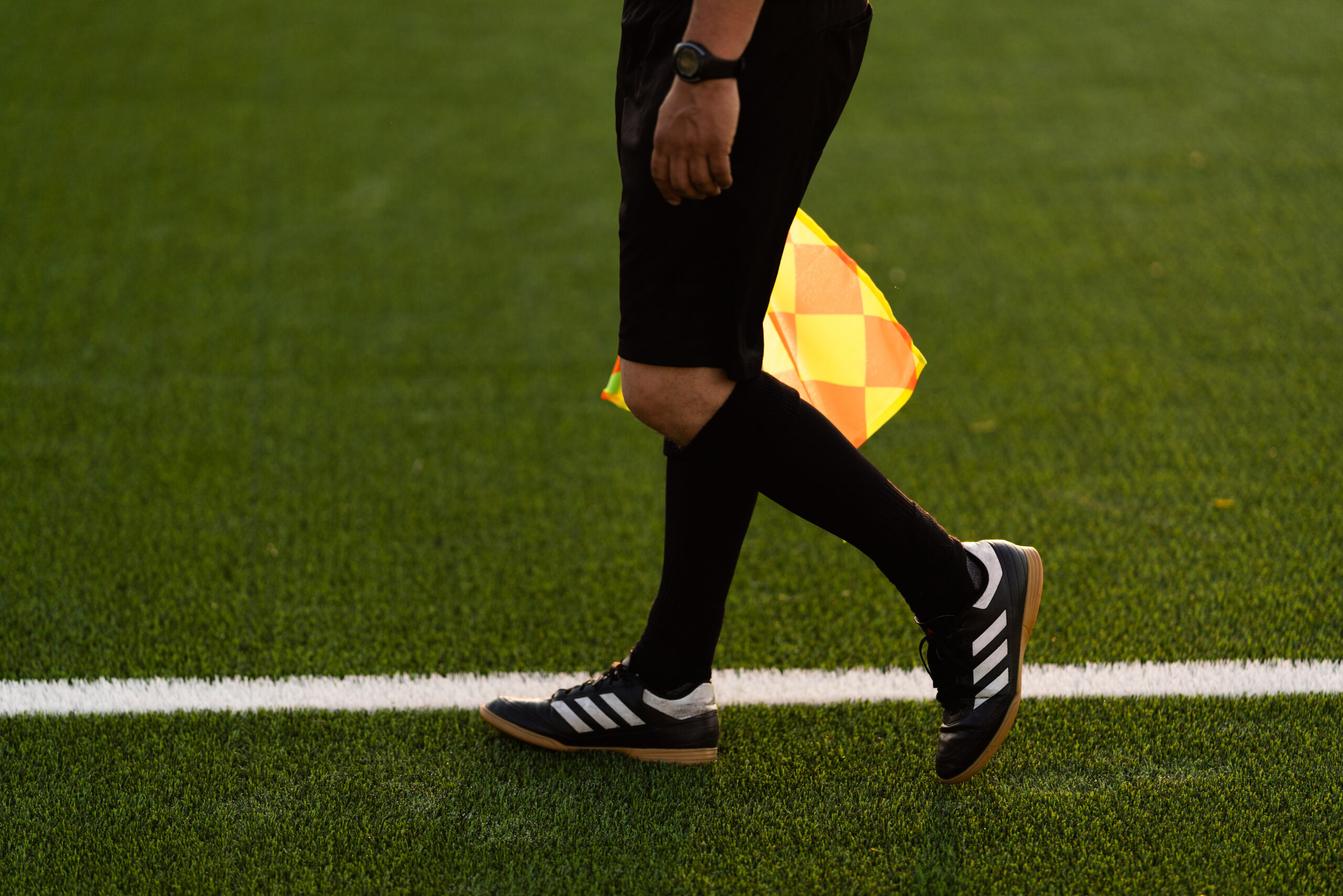It seems that every weekend while I visit youth soccer games at local parks, the sounds of cheering are drowned out by the screams of abuse hurled at referees. The staggering verbal grenades are constant, emotive, and targeted. In the Houston area, the cacophony of anti-referee insults is multi-lingual and apparently and intentionally spoken in languages other than English, mainly Spanish, as a sort of barrier to justify letting loose.
At first sight, these expressions of disenchantment seem to be a “natural” part of Soccer Culture, where we are allowed to release emotion as we follow the beautiful game. We praise and continue to be fascinated by the Andres Cantors of the world who can scream a single syllable word for minutes without taking a breath. This orgasmic release is accepted as not only permissible but necessary. “It’s part of the game,” we are told.
We see professional players at the club and national team levels throughout the globe disagreeing with every call the officiating crew makes. At post-game press conferences, we hear impeccably dressed, intelligent, and eloquent managers/coaches blame the referees for their teams’ misfortunes and mediocre play. “If it hadn’t been for the referee,” they spout with frustration, “the points would have been ours.” “It’s part of the game,” we are told.
These professional players are role models for millions of children who as adoring followers will replicate every single flop, foul, and verbal volley the “heroes” can muster during their performance. “Finding loopholes” and “getting away with it” are praised in locker rooms as “intelligent and crafty play.” Many of us have taken “play the whistle” as carte blanche to discard basic human decency. “It’s part of the game,” we are told.
Our collective sports culture has painted the referees as the bad guys. They are always wrong and they are out to “get” our team. Professional sports leagues not only accept but encourage that fans consume alcohol, ideally in-stadium, and release their anger by pounding, chanting, and screaming at the top of their lungs. This “entertainment experience” includes the verbal abuse of referees, opponents, and any others who are “against our team”. The mix can be explosive and deadly as we have witnessed in countless stadium incidents in the past. “It’s part of the game,” we are told.
One may create an alternative universe where this type of behavior at professional sports events can be justified as “Hey, I paid my money, so I have the right to …” But the problem is that this ambivalent behavior has now permeated the youth sports world with full force. It’s not about infringing on any constitutional rights but the justification for excessive malcomportment has tipped the scales of decency and has created a dangerous mix.
The deadly incident that took the life of an amateur soccer referee in Michigan in June of 2014 is a sad reminder that referees put their lives on the line. It is unfathomable that a youth soccer referee should fear for his or her life for officiating a game while earning less than minimum wage in the process. Youth soccer referees have been pushed, bumped, attacked verbally and physically, and have had to run to the parking lot seeking safety in their automobiles as they are pursued by angry mobs who disagreed with their interpretation of the rules. Not after a Copa Libertadores Final but after amateur children’s games. “It’s part of the game.” Yes, it is, but it has to STOP.
The truth is that this behavior is not only reprehensible and idiotic but it’s a stain on the sport and more should be done by all involved to eradicate it from our youth soccer culture. Coaches, parents, leagues, referees, and all of us have to do our part to eradicate the very real threat that we may once again be attending the funeral of a referee who will never again see their family because of a disputed call at a youth soccer game.
Forget qualifying for a World Cup, forget signing the next international superstar, forget the college scholarship, if we as a soccer community cannot get this basic issue under control, the unraveling of the sport will continue. We have the power to improve the sideline environment, we have the power to better educate ourselves and our children, and enjoy the many positive lessons that the beautiful game can provide.

 Baby Bull Boxing
Baby Bull Boxing Houston Dash
Houston Dash Houston Roughnecks
Houston Roughnecks Soccer Tejas
Soccer Tejas







